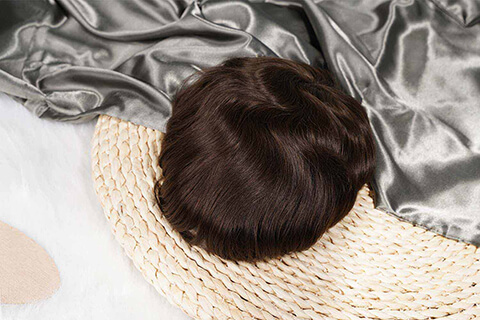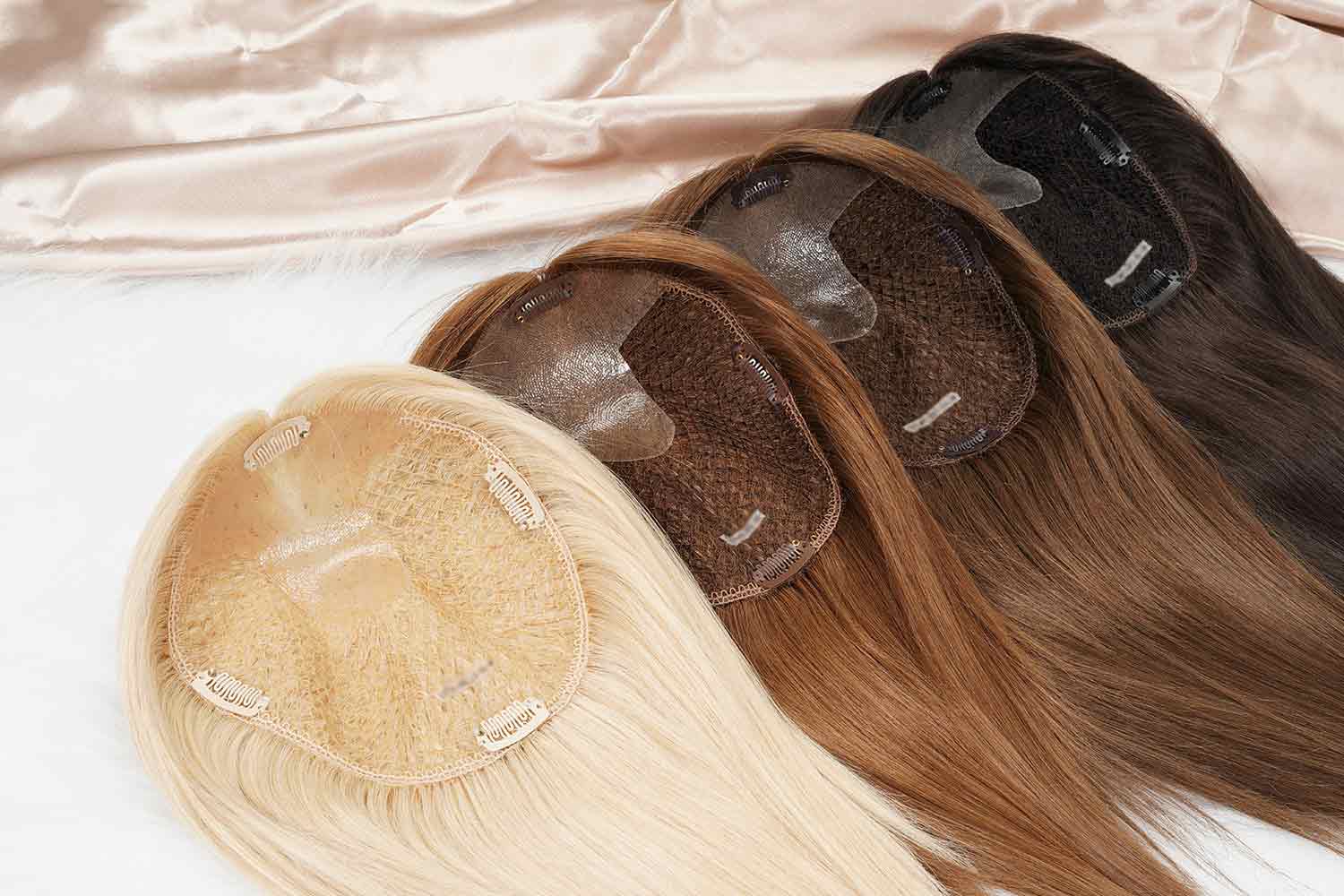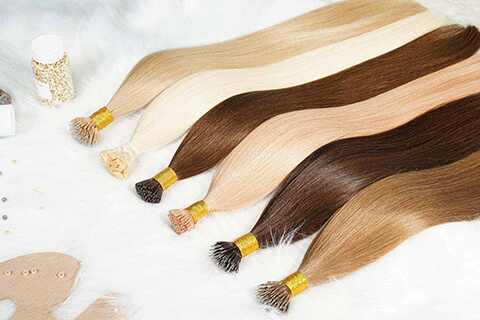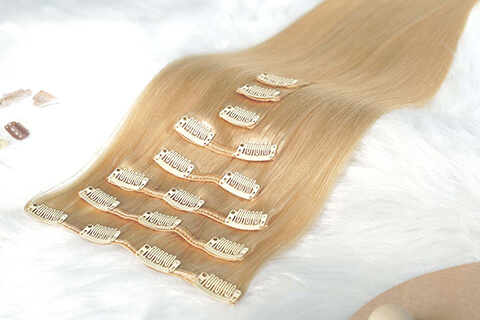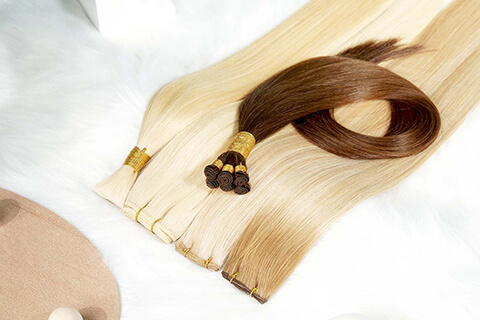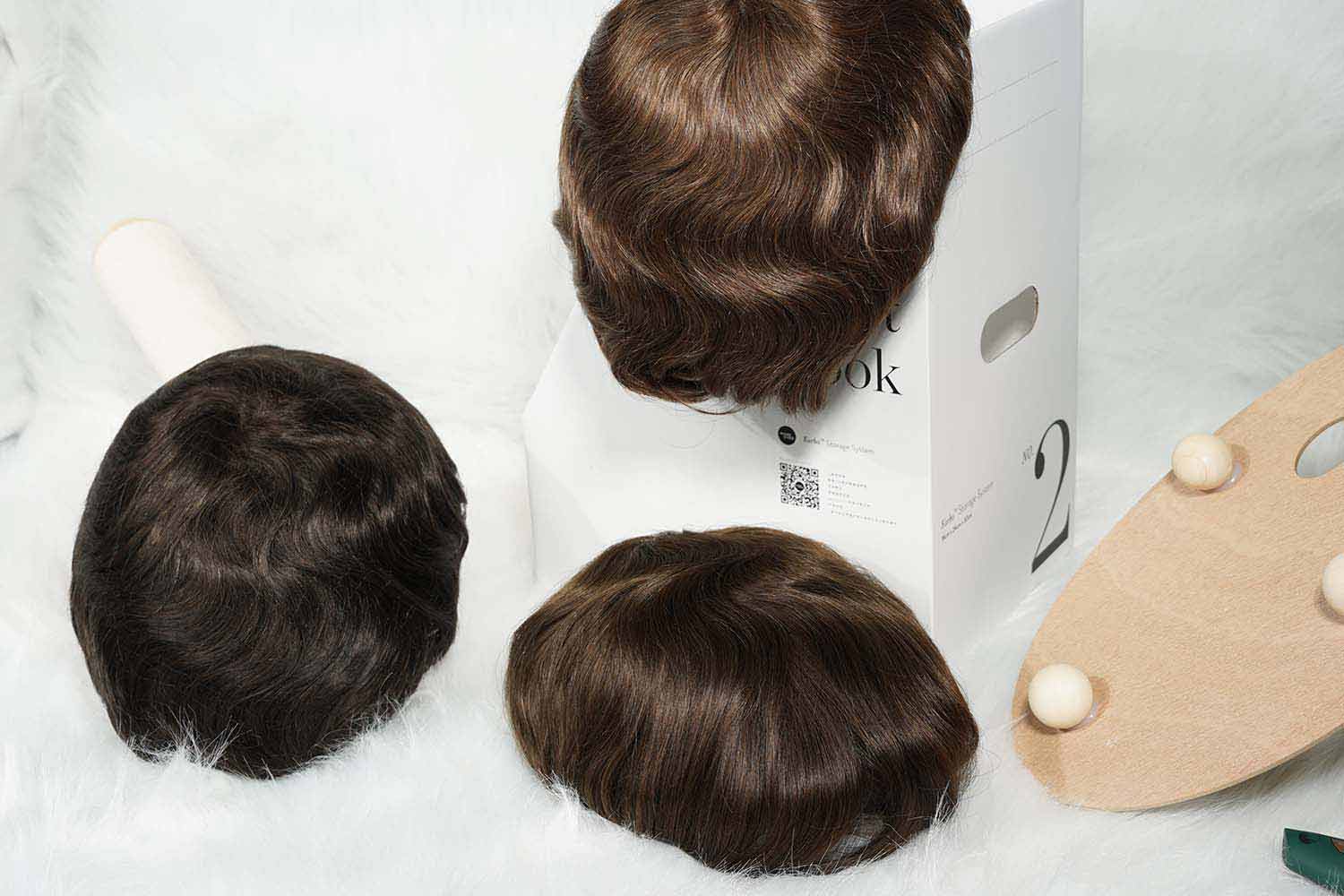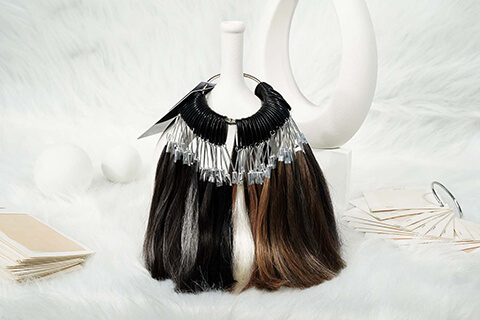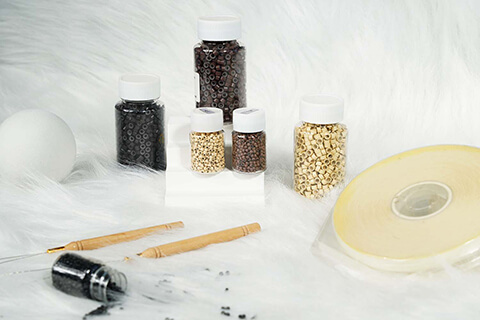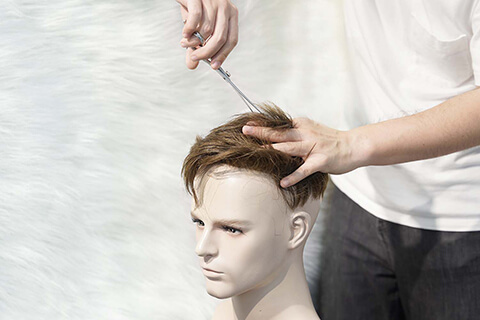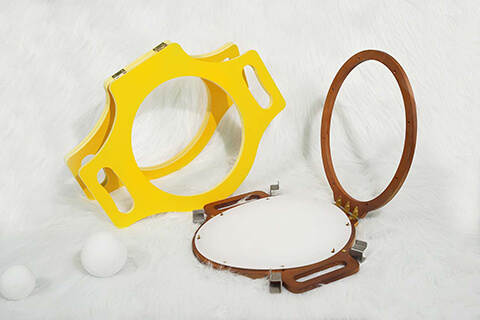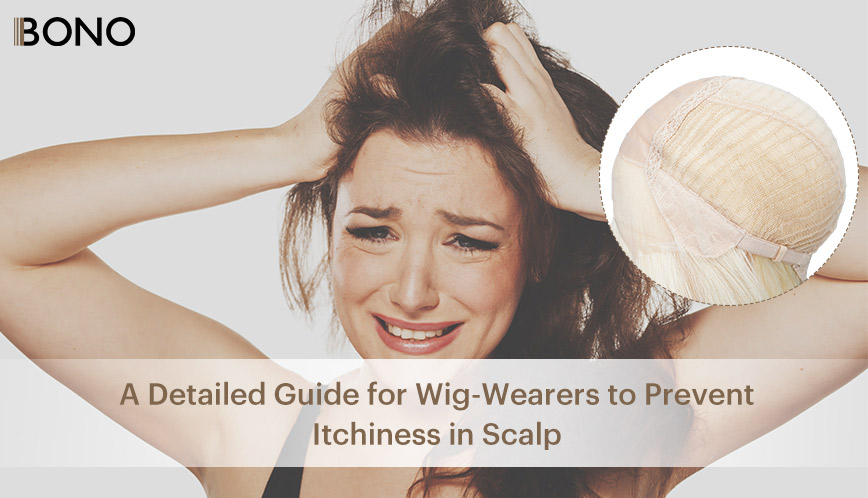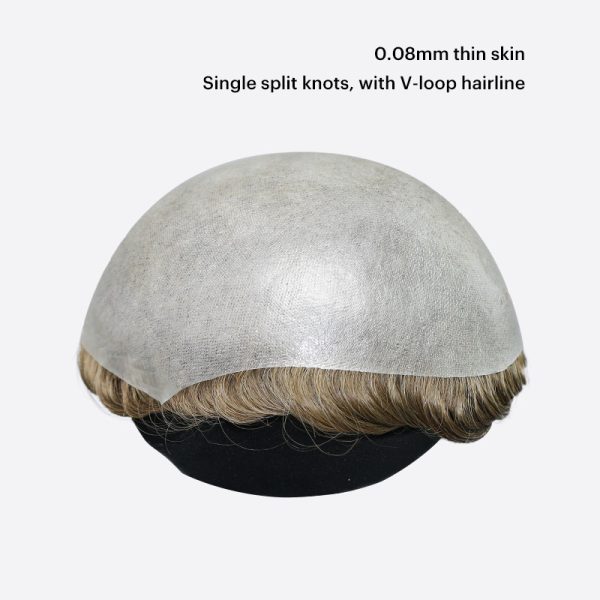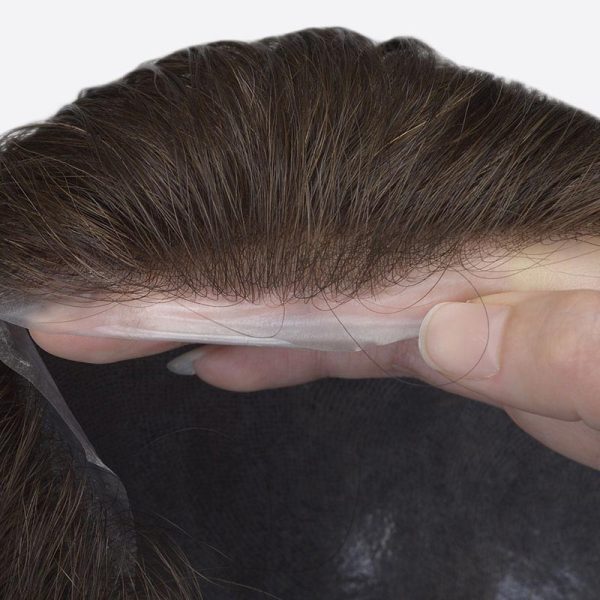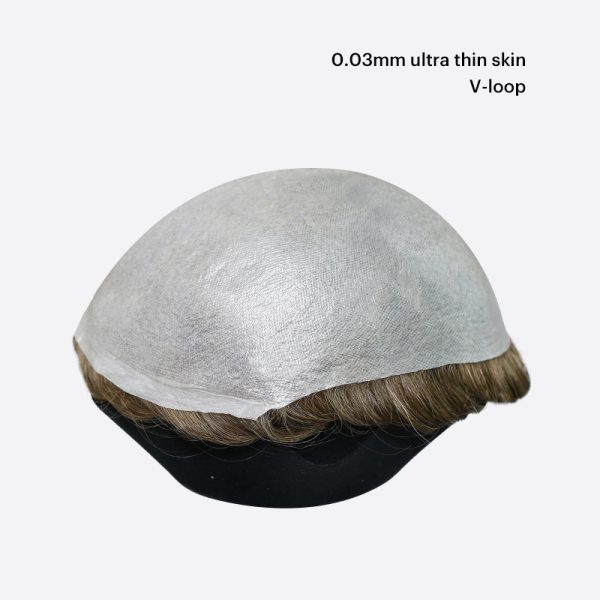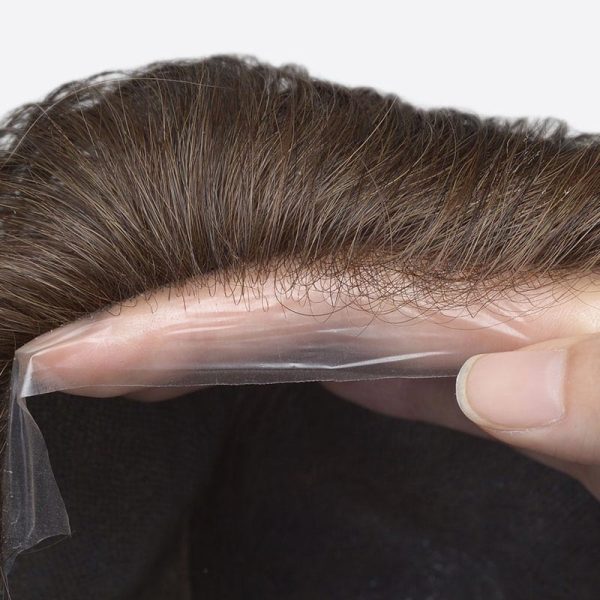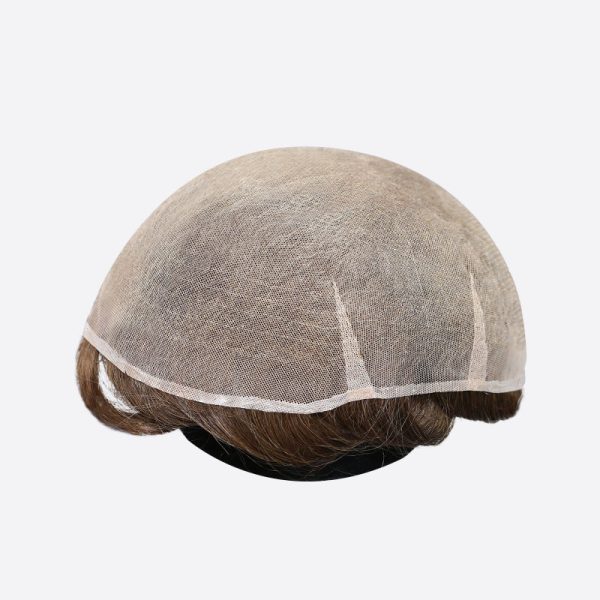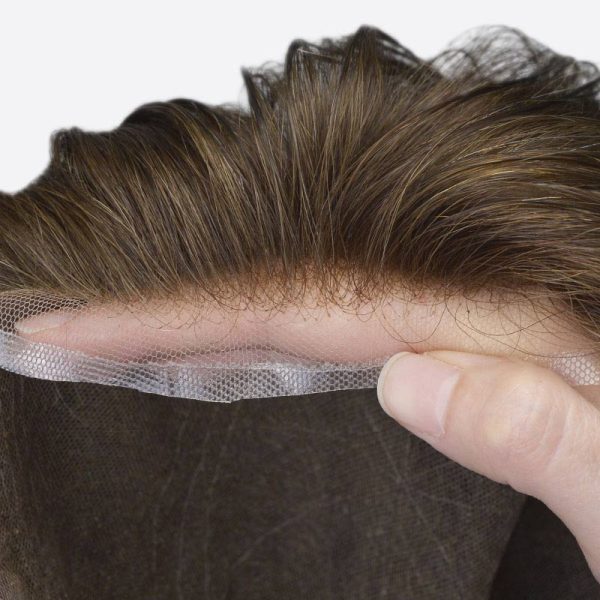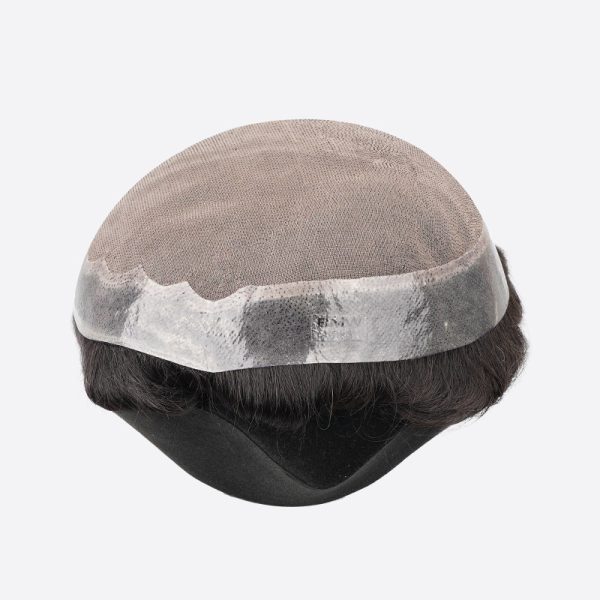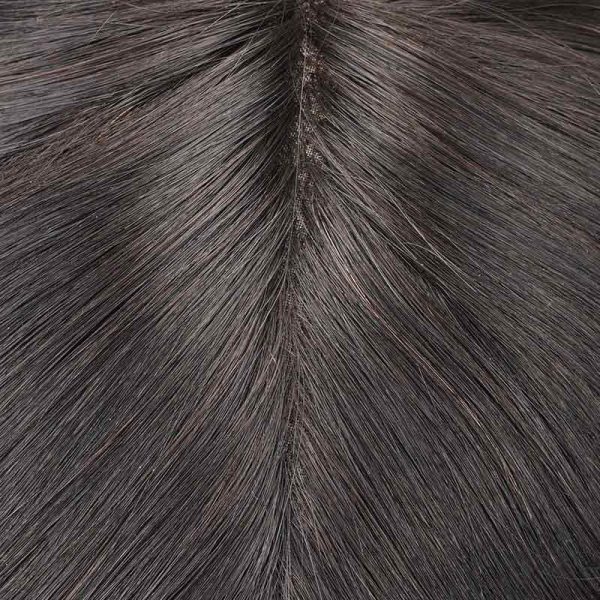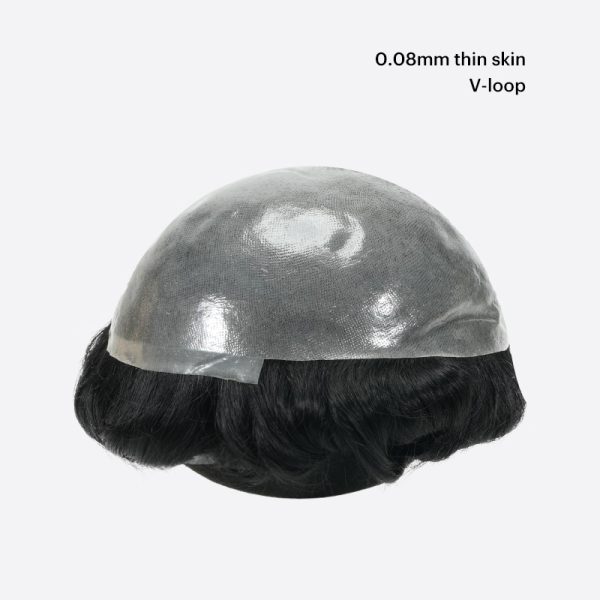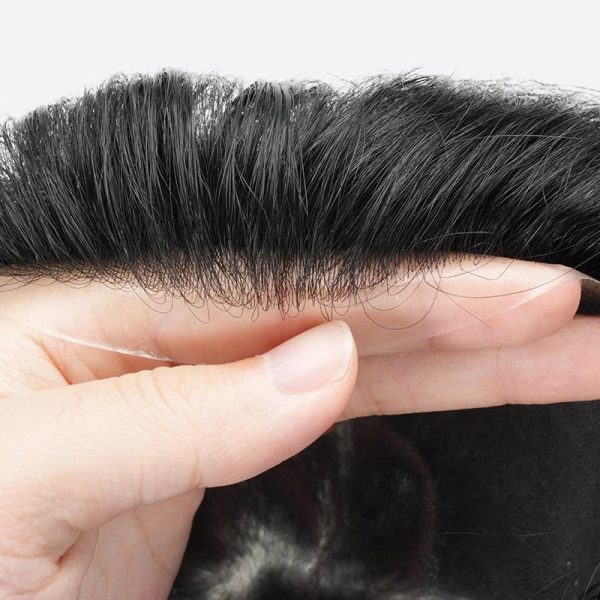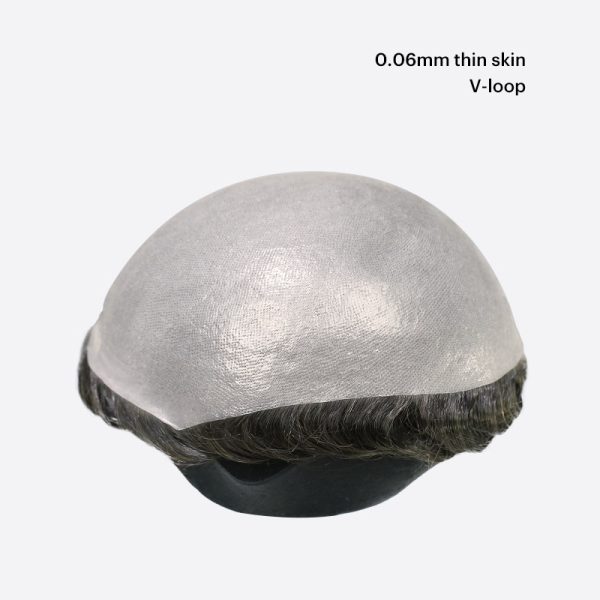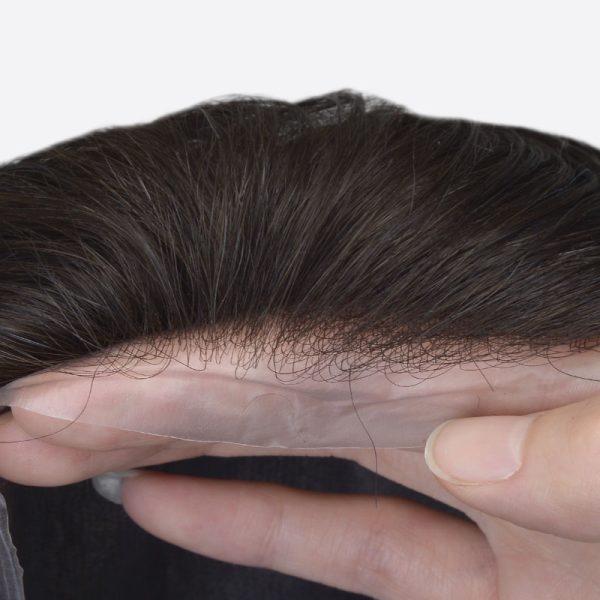Wigs are the most suitable and painless solution for hair loss issues, thousands of people worldwide wear wigs not only for hair problems but also to make a stylish appearance. Most regular wig wearers complain about the dry, itchy scalp caused by different issues like lack of ventilation, texture, maintenance, or adhesive type of wigs.
In this blog, we will cover all the reasons that lead to dry and itchy scalp, and we will also share tips through which one can combat dryness and protect his scalp from itching while wearing a wig. Below are the main topics that we will cover in this blog:
Introduction
Wig wearers often experience itchiness and dryness in their scalps, various factors cause this issue in synthetic and human hair wigs. Synthetic hair systems, in particular, can cause skin irritation as it’s made with material that can be allergic to some skin types. However, many other factors can cause discomfort to the scalp, like friction between the scalp and the wig cap and inadequate ventilation that traps moisture and heat under the wig and gives life to itch-inducing bacteria.
Many wig wearers blame their wigs for this itchiness and quit wearing them; however, several ways exist to eliminate itchy scalp. One can choose wigs that are made of hypoallergenic materials and breathable. You can also ensure proper hygiene to avoid this issue; a regular scalp massage can stimulate blood flow and help reduce itching, and you can also use scalp soothing products. Therefore, don’t compromise on your looks if you are struggling with an itchy Scalp; we are here to guide you on stopping hair from itching under the wig.
Reasons for an Itchy Toupee
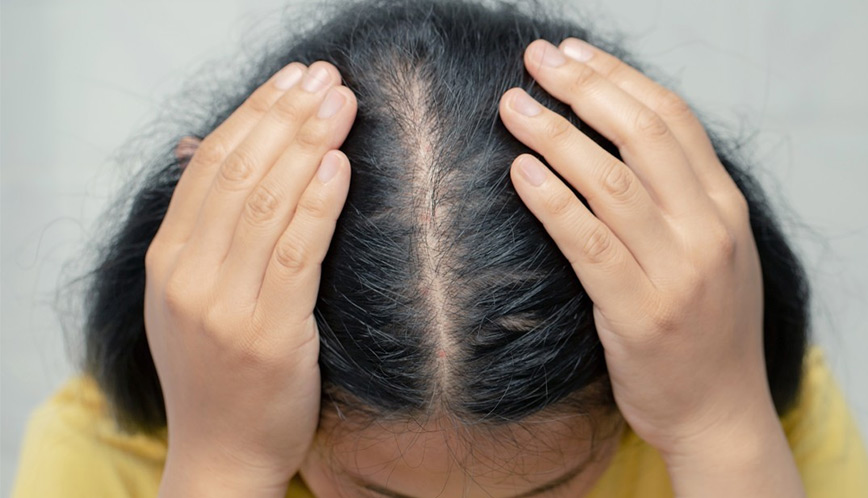
Here are the five most potential reasons behind itchy and dry toupee, let’s discuss them and discover why your scalp is itchy while wearing the wig.
1. Improper Wig Care and Lack of Maintenance
Your scalp becomes very itchy if you don’t provide your wig proper care. Sleeping with wigs, use of harsh chemical and heating tools, and excessive brushing are the reasons that damage wig fibers, and this damage leads to scalp irritation. All wigs come with care instructions that ask you to use the wig gently to maintain its quality and to make it last longer. Maintaining your wig’s quality can certainly help in preventing itchiness.
2. Heat and Sweating
The most common reason for itchy scalp under the wig is the accumulation of heat and sweat. Wigs normally trap heat against the scalp, build up sweat, and harbor bacteria in warm and humid weather. Some wigs are made of materials that need to be designed with proper ventilation; lack of ventilation builds up sweat and causes itchiness and irritation. It’s best to use hair systems made with breathable material to combat this problem.
3. Allergic Reactions
Some individuals may experience this irritation due to being allergic to the material used in the wigs or wig adhesives. Some people are prone to allergies, and some wigs contain common allergens like latex, certain glues, and synthetic fibers that cause allergic reactions. This reaction leads to redness, rashes, and itching on the scalp, which can also become severe. Hence, it’s best to always check the materials used in the wig and adhesive and always go for hypoallergenic options if you have sensitive skin to avoid inconvenience.
4. Dirty Wig and Scalp
One thing that can exacerbate itchiness is a dirty wig or scalp. If your scalp has oil, sweat, and dead skin under your toupee, it’s an ideal environment for irritation and itching. You can never eliminate irritation and itchiness if you don’t ensure proper scalp hygiene and regular wig cleaning.
5. Tightness and Tension
Too tightly fit wigs also contribute to itching; if your wig is tightly secured with adhesive, clip, or combs, it can also exert pressure on the scalp, leading to discomfort and irritation. Your wig’s proper application is also essential; if it is too tight, it causes friction to your scalp.
6. Friction and Rubbing
The constant friction between the wig and scalp can lead to irritation and itching over time, and this is especially true if the wig’s cap construction or materials are not suitable for your skin type. Consider opting for wigs with lace front or soft cap constructions that reduce friction and provide comfort.
7. Dandruff and Underlying Skin Conditions
Dandruff is another reason for stimulating itchiness and flaky scalp, and wearing wigs can worsen the condition. On the other hand, underlying skin conditions like psoriasis, fungal infections, and seborrheic dermatitis can also get worse by wearing wigs, as wigs trap moisture and make your scalp’s condition conducive to their development. Hence, if you experience persistent itchiness, it can be due to these underlying skin conditions.
8. Cheap Hair Systems
It’s human nature that we are always fascinated by low-priced products; these low prices are sometimes low in quality and material. When it comes to hair systems, cheap wigs and toupees can cause serious damage to your scalp as they are made of poor base material and knotting. Therefore, always invest in premium quality hair systems as it’s a long-term investment.
Bono Hair wig manufacturers are the most reputable and reliable brand in the hair replacement industry. We produce some high-quality products for our customers across the globe, and we never compromise on quality.
9. Hair Coloring
Hair dying and coloring is also the common reason causing itchiness on the scalp. Most people want to match their natural hair with their wig’s color and dye it accordingly to get the same shade. Coloring your hair and wearing a hair system over it can cause serious discomfort. Hence, always massage your scalp with coconut oil after coloring your hair to soothe your skin; you should also not wash your scalp for a few hours after oiling to ensure relief.
Tips for Avoiding an Itchy Scalp
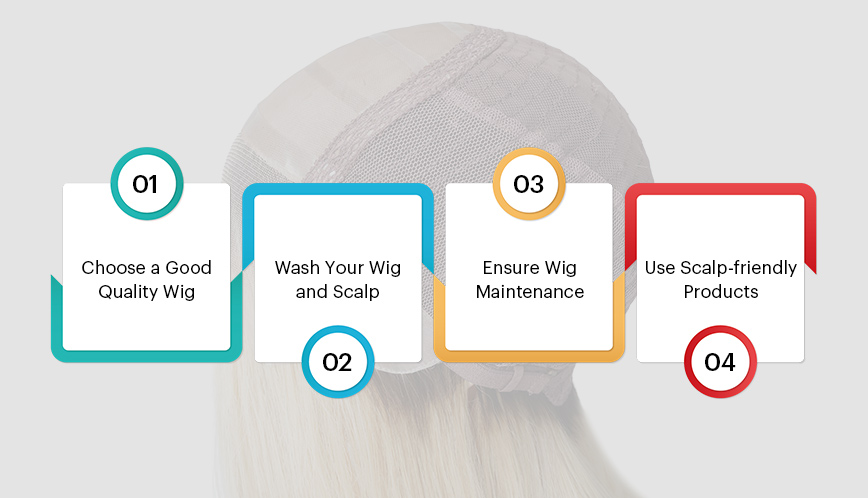
Here are a few tips through which you can avoid an itchy scalp. These would also address the most frequently asked question of wig wearers: How to stop hair from itching under the wig?
● Choose a Good Quality Wig
A premium quality wig doesn’t cause any irritation to its wearer, and it’s not necessarily a human hair wig; a good quality synthetic wig can also cause less itchiness. Lace front wigs are best in this regard as their design has a sheer lace front, which gives an illusion of a natural hairline. These wigs have better ventilation and reduce heat and sweat buildup on the scalp.
Wigs that do not fit properly, like too tight and too loose, can also irritate; hence, ensure that you opt for a wig that fits properly and snugly on your scalp. You can also consider wearing a breathable wig cap made of spandex or nylon; this can protect your scalp from the direct contact of a wig and reduce irritation and friction.
● Wash Your Wig and Scalp
Untidy Scalp also causes itching and irritation; thus, thoroughly clean your scalp before applying the wig. Always use a mild, sulfate-free shampoo for the scalp and hair. Your wig also requires regular and thorough cleaning according to the manufacturer’s instructions. Thoroughly rinsing the wig with water before washing is very important as it cleans all the shampoo and other product residue that can irritate. Ideally, it would help if you did this at least once a week to remove adhesive residue and bacteria from your wig. Cleanliness helps a lot in reducing oil and sweat, which causes itchiness.
● Ensure Wig Maintenance
The hair system’s maintenance is integral in reducing skin and scalp irritation. Usually, wear and tear of wigs also contributes to itchiness. One can avoid this depletion by carefully brushing regularly and regularly removing loose hair with the help of scissors. The loose hair and material in the wig cause scalp irritation in direct contact with the scalp.
● Use Scalp-Friendly Products
Wearing a wig all day can exhaust your scalp; to rejuvenate your scalp, you need to use scalp-friendly products. Various hypoallergenic and anti-itch moisturizers are available in the market to keep your scalp cool and refreshed, so apply these wig-safe moisturizers before wearing wigs. Always look for products designed for wig wearers, as they cause no harm to the wig’s integrity. These moisturizers help remove extra oil buildup that aids in harboring itching bacteria. You can also use organic zinc lotions and sprays to clean your scalp from infections caused by adhesives.
Conclusion
To sum it up, to address itchiness in the scalp while wearing a toupee, one needs to consider the factors causing this problem and take appropriate measures. In short, maintaining good hygiene, ensuring a comfortable fit, choosing breathable wigs, and being aware of allergic reactions can reduce irritation and itching in the scalp. By taking these useful measures, you can make wig-wearing an enjoyable experience; if the problem persists, you should consult a wig specialist or dermatologist. These healthcare experts can provide personalized guidance and solutions tailored to your needs.










